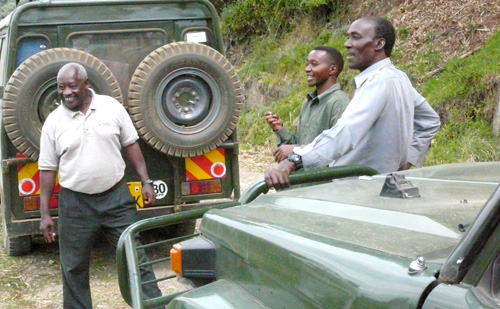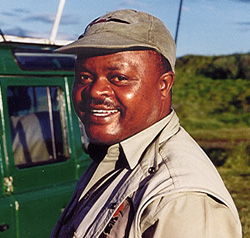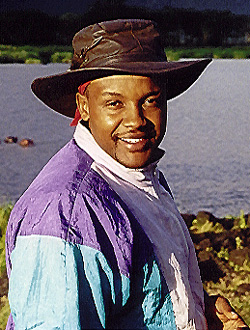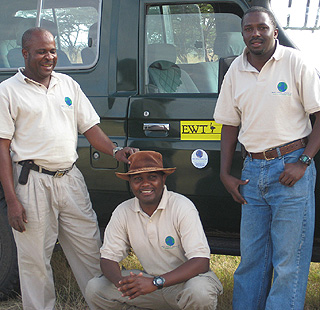
I’m not one to oppose industrial action, almost anywhere. Workers of the World have taken a huge hit during my life time, while Managers of the World have grown fat on their sweat.
But I didn’t tell you about the planned strike of Tanzanian driver/guides – which was known since January – because I knew it wouldn’t happen. And if I had told you, it would have made things infinitely worse.
This was true of virtually everyone I knew who knew. So from the getgo, let me apologize for not telling you, but let’s just agree to put it in the category of not-wanting-to-contribute-to-an-economic-mess.
It’s a bitter/sweet story if ever there was one.
Had we all reported with gusto the planned strike, virtually every foreigner booked into Tanzania this season would have asked to book out of it (into Kenya, instead, for instance). We know the way travelers behave when an airline strike is announced.
And because of the terrible economic downturn that laid off more than half the steady, experienced driver/guide work force in 2008/2009, we all knew that if a strike were called, that there would have been no difficulty finding good replacements. Scabs are everywhere.
So… we all knew that if a strike were called, we could genuinely remark to our clients that it wouldn’t matter, or for all practical purposes, wouldn’t effect them.
While putting our good guys out of work… maybe, forever.

It was – unfortunately, bitter-sweetly – a hollow threat. And.. That’s really too bad.
An unofficial “union” of safari driver/guides in Tanzania claims to – and probably really does – represent around 3000 men. This is likely around half to 60% of the steady workforce. It’s hard to know for sure, because only a handful of those thousands are permanently employed.
An East African driver/guide is usually paid by the job, or by the month providing there are a minimum number of jobs, and this has especially been the case since the economic downturn. There is a great variance in salaries, but I think a good guess of an average amount is about $200/month.
That barely reaches what’s considered minimum wage in East Africa, but the fact is that driver/guides are among the richest employees in East Africa because of their tips. A driver/guide who works 20 days can easily earn another $400-800 per month. (A recommended tip is about $10/client/day, although Americans often tip much more and Europeans much less.)
A good, steadily working driver/guide can easily pull in $6000/year. An outstanding guy can make double that and usually the worst of them make $2500. Compare that to a starting employee at the front desk of a major hotel in a city who makes around $500/month. Or a senior marketing (10 years + ) sales person in tourism who mans a foreign trade booth and makes around $1200/month.
So … it’s a good job. AND it’s an essential job for tourism.
There is a change occurring, now, in East Africa which is sidelining driver/guides. Like southern Africa there is a definite trend away from hiring a vehicle to drive you from park to park, to flying from camp to camp. I definitely don’t prefer this because I think a visitor loses a lot when they don’t experience the countryside between the sanitized, westernized game park camps.
And besides, East Africa lends itself to driving much better than southern Africa: the parks are much closer together than in southern Africa.
But the trend is there, in part because of the growing antipathy of foreign visitors with enough affluence to afford a Crater Lodge to driving over a pot-holed road next to open sewers. Nevertheless, this trend is not excessive. Driving in East Africa is here to stay as the main component of a safari for the foreseeable future.

But their common denominator is an incredible affability that in a meaningful way introduces the foreigner to Africa. They become a traveling companion, not just a casual guide.
But this dynamic, strangely, has never included allowing the driver/guide into the same accommodation culture of their foreign guests.
The guest spends the whole day with the driver/guide, but after returned to the lodge for meals and overnight, they part ways. Driver/guides eat and sleep separately.
And only very recently have lodges and camps even agreed to be paid for driver/guides at the same rate as clients so that they can be with them in lodges and camps!
Yes! Isn’t that amazing? And this was true more often of the better lodges and camps than the more mainline ones. When we tried to enroll an East African driver/guide as a paid guest, we would simply be ignored. The invoice would be reduced, and only western names would be confirmed into the property’s tourist facilities.
That’s changing, but very, very slowly. This is racism at the core, both ideologically and geographically!
And to complicate matters, many driver/guides don’t want to sleep and eat with their clients. There’s two reasons for this:
First, it’s a relief to be extracted from a 24/7 job and given some down time with your buddies. But more importantly, they know the huge difference in costs. At &Beyond’s Crater Lodge in Tanzania, a retail guest pays $1065 per night while his driver/guide pays around $20.
And at Crater Lodge driver/guides get decent, clean accommodation and excellent meals for that $20. Understandably, if the cost of the safari increases by $1045 for that one night so that the driver/guide can have linen instead of paper napkins and two pillows instead of one, they would much rather get a bigger tip or be paid more. They need money for school fees for their kids, not chocolate mints on their turned-down pillows.
So, in fact, when I’ve tried to bring some of our own best driver/guides into the lodge experience, I’ve encountered huge resistance from them…. understandably. “Pay me more,” instead is the message.
So in a bitter-sweet way the separation of your most important safari component from you is now institutionalized in East Africa. So be it?
Well, not necessarily. Not when the accommodations are as horrible as some have become recently. There is a definite list in my head of the property companies who either never did provide decent accommodation, or that provided no maintenance to what existed before the economic downturn.
Some of the most egregious negligence is with mosquito netting. Those of us who live in East Africa don’t take malaria prophylaxis; over long periods it’s toxic. We rely on physical protection, like mosquito netting and bug spray.
Mosquito netting is about as durable as butter left out on a summer’s day. It easily gets holes, loses its tensile strength and opens up huge gaps. We travel with scotch tape and bug spray, usually, but sometimes the spray is very expensive and the holes too big.
Over the last few years, a number of property companies have been consolidating the bathrooms and showers available in the driver/guide dorm rooms. It isn’t that the existing 4 men/shower average changed – the buildings weren’t rebuilt – it’s just that when a shower or toilet broke, it wasn’t fixed.
As properties tried to manage the downturn, their food stores were one of the disposables that could be reduced. Driver/guides now seem to get the leftovers, rather than the meals planned specifically for them.
So it was no surprise in January that the “union” announced it would strike. And it was no surprise last week when the “union” announced it wouldn’t strike.
Has anything changed?
